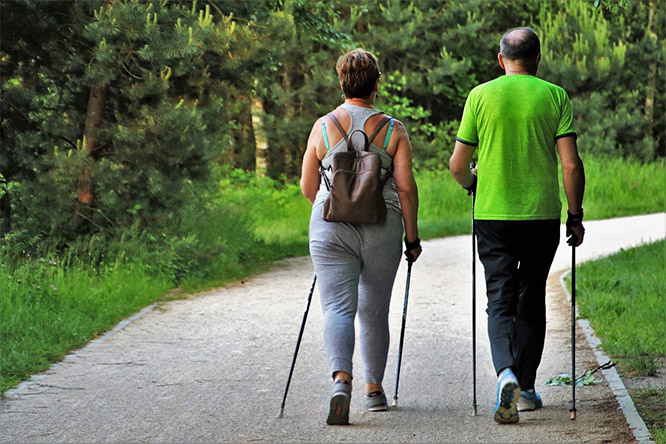
by Angel Jony
Data from the Office for National Statistics predicts that, in 50 years, there will be an additional 8.2 million people in the UK aged 65 and over as the country’s population continues to age.
And according to the NHS, many adults aged 65+ spend an average of at least 10 hours per day sitting or lying down. Unfortunately, this contributes to an increase in obesity, heart disease and early death, which is why it’s more important than ever that the elderly try to stay as active as possible.
There are plenty of provisions to help the elderly feel comfortable at home, such as stairlifts, specialist slippers from Mobility Solutions and walking frames, but how else can the older generation stay active in a way that’s manageable and suits their lifestyle?
Walking
It may sound simple, but even a short walk once a day can improve a person’s health and well-being. Perhaps a brief stroll to the shops for the daily newspaper or a quick wander around the local park could be enough to get you out of your armchair and into the fresh air.
Walking can improve a whole range of issues, including your balance; bone strength; circulation and cardiovascular fitness – and it doesn’t have to be a 10-mile trek every day! It can be a good way to keep grandchildren entertained as well, change the walk into a treasure hunt if it’s the right time of year you can go on a berry hunt, or look for pinecones, this way you can also teach them something.
Gardening
There’s something extremely satisfying about growing your own plants or vegetables, so trying your hand at a spot of gardening can help to boost your mental as well as your physical health.
The fresh air can have a revitalising effect, while even a task as simple as mowing the lawn or pulling up some weeds can leave you with a real sense of achievement and then you can also learn to make new food if you grow something that you wouldn’t usually.
If you don’t have a garden, you can always check your community for any local volunteer gardening projects that may be happening.
Walking Football
It is estimated that around 40,000 people take part in walking football every week across the UK – a sure sign of its increasing popularity. As well as encouraging the older generation to stay active, it opens up the possibility of beginning fresh friendships and immersing yourself in new social circles.
Even if you’re not the competitive type, that doesn’t matter – walking football is all about encouraging activity and improving the health and well-being of its participants. There are also specific clubs for those over 70, which is great as the rules include No running and no physical contact. Along with matches only being 20-25 minutes long, this means you can play the games and still have time to socialise as it can be a great way to meet new people as well, with similar interests.
What determines how healthy you will be as you get older?
The changes you will go through as you get older depend on a number of factors. One consists of family history (genetics). If your family members have continuous (chronic) diseases or health problems, such as high blood pressure or diabetes, you may be more likely to have those problems. But just because your risk is higher does not mean that you will definitely have the same problems. In fact, the lifestyle choices you make can help reduce your chances of getting common diseases in your family. And even if you have an inherited disease, choosing to do physical activity, eat healthy foods and learn to manage stress can prevent the disease from destroying your ability to enjoy your golden years.
What types of changes should you expect as you get older?
Changes, as you get older, are usually gradual. Certain physical changes are common. Your metabolism (how quickly your body can burn calories) becomes slower over time, which means that your body needs less energy from food than before.
How much you sleep and the quality of your sleep will probably change too. Most people begin to need glasses to read around age 40, and many people have hearing loss later.
From the age of 50, bone ageing increases. Also from around the age of 50, you may notice changes in sexual function: it is normal to have a slower sexual response.
Conclusion
You have to keep in mind that most vital organs gradually become less efficient with age. The kidneys have less ability to retain enough water in the body. And the heart can begin to show signs of wear. Therefore, as you get older it is important that you do physical activity, drink plenty of water and choose healthy foods. Doing these things will help your body function well for a longer period.
Author Bio
Angel Jony works as a writer in the health and fitness industry and loves giving tips that will help people be healthier and fitter. In his spare time he loves football, cooking and travelling.
